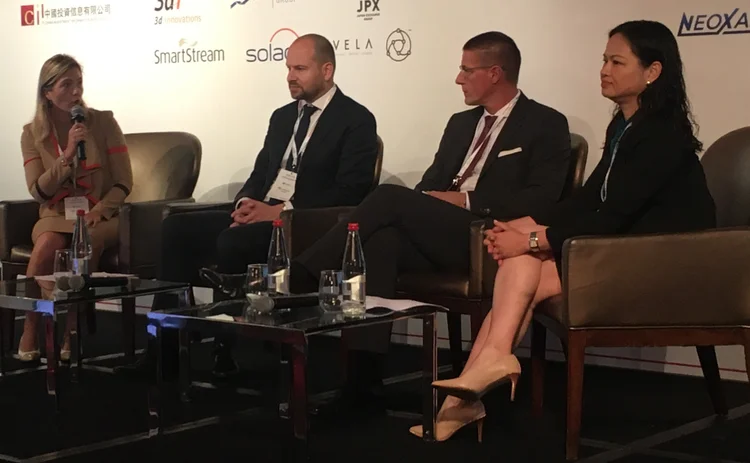Exchanges: No Free Data; Maybe Free Trading?
Exchanges say data will continue to have sufficient value to justify data fees, whatever changes occur in trading activity.

"Increasingly, trading platforms are competing for the same kind of underlyings. New regulation is going to continue to foster that kind of environment. Going forward, trading will become more like a commodity that you can get everywhere. But what you can't get everywhere is the data. The only value-add item will be the data," said Hartmut Graf, head of the information department at Deutsche Börse, adding, "Wouldn't it be better just to make trading free and charge for data only?"
Ross Stuart, senior director of global data licensing services at CME Group, described his time at the London Stock Exchange, to illustrate how the current landscape of ongoing regulation is unlikely to damage data's value. In 2007, the introduction of MiFID saw trading fragment between multiple exchanges and multilateral trading facilities. "LSE was finding that for its FTSE 100 stocks, it was commanding less than 50 percent of the market share... but the data was still essential for those wanting to trade on the other markets," he said.
While the regulation was damaging for the trading side of the business, "It didn't diminish the value of the data because it was still so important to have all of the answers... to be able to trade in an informed manner elsewhere," Stuart said.
Winnie Poon, head of market data at Hong Kong Exchanges and Clearing, agreed. Trading firms come to HKEx because "We create the market data, and no one can get the same market data from anywhere else.... We are well positioned to add value to the transaction cycle," she said, adding that if you can't get a product anywhere else, there is no reason why it should be offered for free.
Jutta Werner, head of content partners in Asia at Thomson Reuters, who moderated the panel, cited MiFID 2's mandate that data must be made available on a reasonable commercial basis, and asked whether this guideline would impact existing fees for market data.
Graf said that while the directive does require exchanges to follow certain practices, it also presents opportunities. "We have to adapt to a certain framework for justifying our market data fees. That will have an impact on the standardized market data which we are going to put out. But that [standard data package] is not necessarily everything that people are looking for. Market data as a whole is going to grow, and there is much more data that people are going to consume. Overall, this will be a positive impact on the data business as a whole," he said, adding that while the rules will put some constraints on what Deutsche Börse charges for market data in future, the fact that the rules say data should be available on a reasonable commercial basis-and not free of charge-means the regulators acknowledge that data has value, Graf added.
Only users who have a paid subscription or are part of a corporate subscription are able to print or copy content.
To access these options, along with all other subscription benefits, please contact info@waterstechnology.com or view our subscription options here: https://subscriptions.waterstechnology.com/subscribe
You are currently unable to print this content. Please contact info@waterstechnology.com to find out more.
You are currently unable to copy this content. Please contact info@waterstechnology.com to find out more.
Copyright Infopro Digital Limited. All rights reserved.
As outlined in our terms and conditions, https://www.infopro-digital.com/terms-and-conditions/subscriptions/ (point 2.4), printing is limited to a single copy.
If you would like to purchase additional rights please email info@waterstechnology.com
Copyright Infopro Digital Limited. All rights reserved.
You may share this content using our article tools. As outlined in our terms and conditions, https://www.infopro-digital.com/terms-and-conditions/subscriptions/ (clause 2.4), an Authorised User may only make one copy of the materials for their own personal use. You must also comply with the restrictions in clause 2.5.
If you would like to purchase additional rights please email info@waterstechnology.com
More on Data Management
LSEG partners with Citi, DTCC goes on-chain, AI on the brain, and more
The Waters Cooler: Trading Technologies buys OpenGamma, CT Plan updates, and the beginning of benchmarking in this week’s news roundup.
AI & data enablement: A looming reality or pipe dream?
Waters Wrap: The promise of AI and agents is massive, and real-world success stories are trickling out. But Anthony notes that firms still need to be hyper-focused on getting the data foundation correct before adding layers.
Data managers worry lack of funding, staffing will hinder AI ambitions
Nearly two-thirds of respondents to WatersTechnology’s data benchmark survey rated the pressure they’re receiving from senior executives and the board as very high. But is the money flowing for talent and data management?
Data standardization is the ‘trust accelerator’ for broader AI adoption
In this guest column, data product managers at Fitch Solutions explain AI’s impact on credit and investment risk management.
As AI pressures mount, banks split on how to handle staffing
Benchmarking: Over the next 12 months, almost a third of G-Sib respondents said they plan to decrease headcount in their data function.
Everyone wants to tokenize the assets. What about the data?
The IMD Wrap: With exchanges moving market data on-chain, Wei-Shen believes there’s a need to standardize licensing agreements.
FIX Trading Community recommends data practices for European CTs
The industry association has published practices and workflows using FIX messaging standards for the upcoming EU consolidated tapes.
TCB Data-Broadhead pairing highlights challenges of market data management
Waters Wrap: The vendors are hoping that blending TCB’s reporting infrastructure with Broadhead’s DLT-backed digital contract and auditing engine will be the cure for data rights management.








